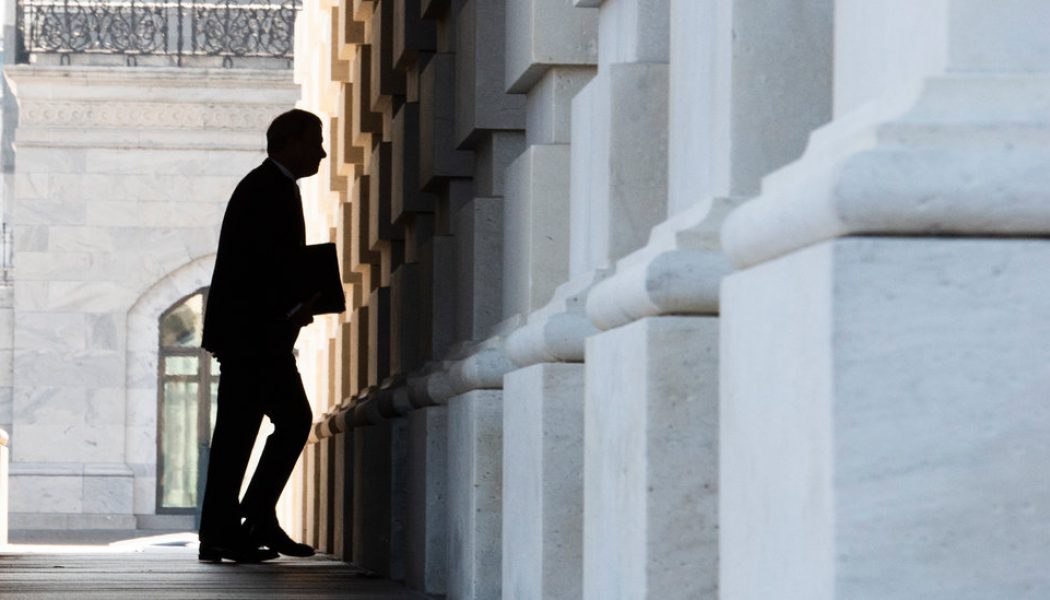
The Supreme Court upheld abortion rights on Monday, with Chief Justice John Roberts concurring with the liberals on the court to strike down a Louisiana anti-abortion law.
That sentence might surprise a lot of people, given that the chief justice is a staunch conservative, and that the court now has a solid right-wing majority. President Trump achieved that majority by appointing two justices with the express purpose of pushing a hard-right agenda, as determined by legal groups like the Federalist Society. Obliterating abortion access in America is at the top of that priority list.
What’s more, Chief Justice Roberts dissented in a case just four years ago that struck down what was an effectively identical Texas anti-abortion law. So the central question ahead of Monday’s decision in June Medical Services v. Russo became: Would the chief justice’s disapproval of abortion outweigh his desire for the court to respect its own very recent precedent?
It turns out that it didn’t. In a concurring opinion that provided the fifth vote for a majority, the chief justice wrote that the court’s doctrine requires it to “treat like cases alike.” Because the Louisiana law — which requires doctors who perform abortions to get admitting privileges at a hospital near their clinic, supposedly in the interests of women’s health and safety — was more or less a carbon copy of the Texas law the court previously struck down, and because it burdened women in the same way, it “cannot stand,” he wrote.
That’s good as far as it goes, which is not very far. It would be a mistake to interpret this decision as a sign that the chief justice has had a change of heart about protecting the bodily autonomy of American women. Even in his concurring opinion, Chief Justice Roberts said that he still believes that the Texas case was “wrongly decided” and that he voted to strike down the Louisiana law solely out of respect for precedent. He appears to have decided that the circumstances of this case were not ideal for crippling reproductive rights — but he left the door open to doing so in the future. Monday’s decision, with the plurality opinion written by Justice Stephen Breyer, isn’t so much good news for reproductive freedom as it is a temporary reprieve from all the bad.
Abortion access in many parts of the country is abysmal — five states have only one abortion clinic, for instance. If the Louisiana law had been upheld, clinics in that state (which has only three such facilities) and across the country could have closed, forcing many women to travel longer distances at prohibitive expense to receive reproductive health care.
That would violate the constitutional right to have access to an abortion without “undue burden,” the standard the Supreme Court has followed since the 1992 case Planned Parenthood v. Casey. A Federal District Court in Louisiana struck down the state’s law because it posed such an undue burden, just as the Texas law had. But the conservative federal Court of Appeals for the Fifth Circuit reversed that decision, ruling that the lower court had gotten the facts wrong — that it was not clear that the new law would actually burden women’s ability to get an abortion.
Monday’s decision reversed the Fifth Circuit ruling, holding that the district court had gotten it right the first time. The Louisiana law, Justice Breyer wrote, was “almost word-for-word identical” to Texas’ unconstitutional law and imposed identical if not greater burdens on women, and therefore was invalid.
Chief Justice Roberts’s decision to concur with the four liberal justices may enrage cultural conservatives who thought that with the confirmation of Justice Brett Kavanaugh, ending the right to an abortion was just a matter of time.
But the chief justice rarely takes the direct route, preferring incremental rulings that slowly chip away at the court’s longstanding precedents. So no one should be fooled this time around: The current court is as hostile to reproductive freedom as it ever was. And Chief Justice Roberts left himself plenty of room to vote differently in any of the many cases now speeding toward the court, involving challenges to other state laws that make it difficult if not impossible for most women to obtain an abortion.
Some of those challenges — like those to laws in Texas and Arkansas that ban a common second-trimester abortion procedure called dilation and evacuation — could give the chief justice an opening to make what he might consider a more reasonable argument for further undermining abortion rights.
No doubt anti-abortion forces behind these cases will continue to push hard; they have a knack for rejiggering their strategy after each big case, and they’ve been especially aggressive in their efforts recently.
Another factor that’s nearly certainly at play here is that the lawyer who argued for Louisiana during oral arguments in March, State Solicitor General Elizabeth Murrill, is widely believed to have bungled the job, answering questions so ineptly that she gave the chief justice little to work with, even if he had been inclined to side with the court’s other conservatives.
It’s concerning that this case made it to the high court at all, given its similarity to the Texas case. It’s even more concerning that the rights of millions of women hinged in part on someone having a bad day in court. But such is the state of reproductive rights in 2020: Members of the pro-choice side count their blessings over the narrowest of victories, while anti-choice crusaders continue to think big, strategic and long-term.








